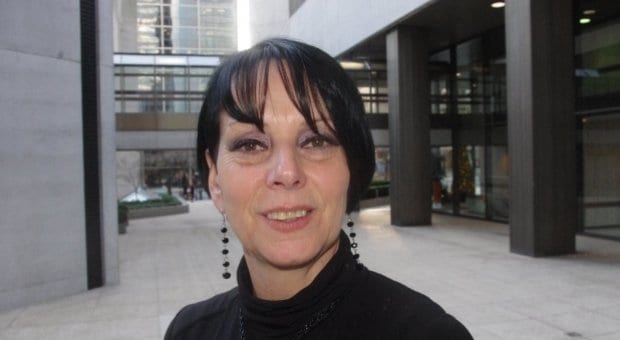Two more British Columbia school districts are set to adopt stand-alone anti-homophobia policies in early 2014.
In November the school boards in Prince George and Port Alberni voted unanimously to release draft versions of their policies for a 60-day period of review by stakeholder groups and the public.
“I am so very excited and thankful that this is finally happening because our district is definitely experiencing students from Grade 1 to 12 that are definitely dealing with LGBTQ issues,” says Susan Trabant, who helps run the gay-straight alliance (GSA) at College Heights Secondary in Prince George.
Trabant looks forward to having a written policy in place to protect students.
This latest move represents a change in course for the Prince George school board, which decided against adopting a stand-alone policy in March 2012. At the time, chair Sharel Warrington said the board would seek instead to improve existing policies that deal with gay issues.
But Trabant says advocates of a policy specifically dedicated to addressing homophobia refused to take no for an answer.
“Everybody who has been fighting for this — and we have a lot of support from the union — were not willing to walk away and back down from this,” she says. “It was important to keep fighting and fighting.”
Trustee Trish Bella says the continued public pressure convinced her to reexamine the issue and bring it back to the board for reconsideration.
“We had some conversations around it at the previous board. However, when it really came to light with this board right now — we were elected in 2011 and right from the start of that term we had the community coming to us at the board meetings,” Bella says. “Teachers, students and parents came to us saying, ‘You need to address this; it’s not strong enough. The wording is not strong enough.’”
Advocates told the board that the current guidelines addressing sexual orientation are buried in several different policies, making it difficult for queer students and their parents to locate the information they need, Bella says.
“My feeling was if we could create a stand-alone one that was all together — you go to one location for the information. And if it helps one student to feel that they are protected, and they can come to school and belong there just as everyone else, we need it,” she adds.
Travis Shaw, who graduated from Kelly Road Secondary in 2002, welcomes the new policy. “I think this policy is needed because the issues are not being dealt with,” he says.
Shaw says students spat in his face, threw food at him, shoved him into lockers and threw him into garbage cans when he was in high school.
“Nowadays the bullying isn’t in the hallway or in the classroom,” he notes, “it’s on the cellphones, Facebook and social media. I was thrown down the stairs five or six times. Now the kids I help out — I help with the three GSAs in Prince George — they say it’s on social media. People are getting more attention since you can instantly cyberbully someone without even meeting or seeing them.”
“One thing that has been brought to my attention by other staff members is that the policy is good — pretty tight and covers everything — but it doesn’t address what could happen on the internet,” Trabant says. “We do have bullying and other cyber issues brought up in other policies, and while this draft is out, maybe we can put something in there about the influence of social media and students involved in that type of bullying.”
Like Prince George, the Port Alberni school district has released a draft of its new anti-homophobia policy.
Ken Zydyk, president of the district’s teachers union, says many members felt they were lacking direction on gay issues. Members of the union’s social justice committee examined stand-alone anti-homophobia policies throughout Canada before drafting their own, he says, and presenting it to the school board for consideration.
The one-page draft policy, titled 511: Sexual Orientation/Gender Identity, intends to increase support for staff and students who are, or are perceived to be, lesbian, gay, bisexual, transgender, transsexual, two-spirit or questioning their sexual orientation.
Of BC’s 60 school boards, 22 now have stand-alone anti-homophobia policies, and five more have anti-discrimination policies that explicitly address homophobia.

 Why you can trust Xtra
Why you can trust Xtra


